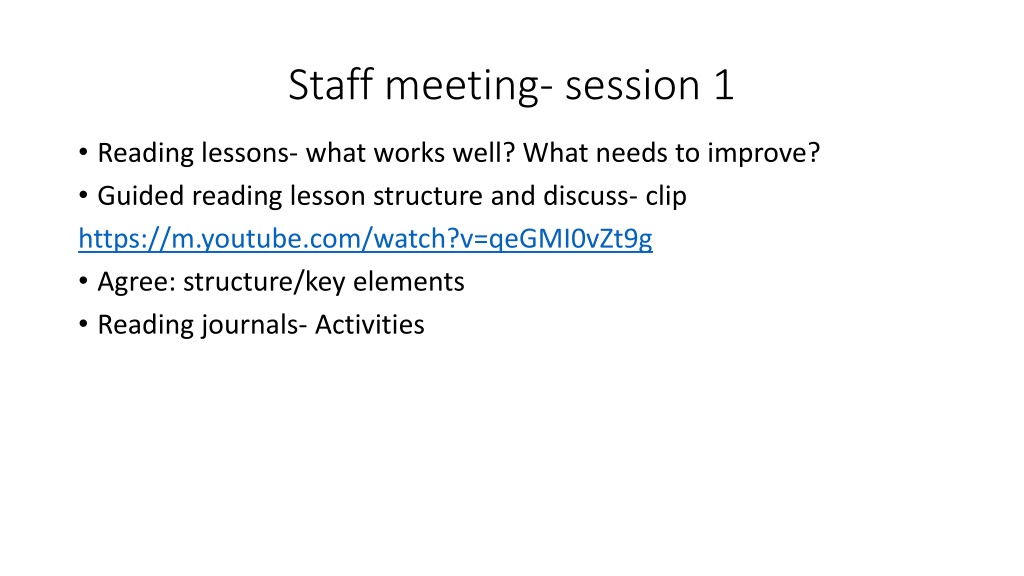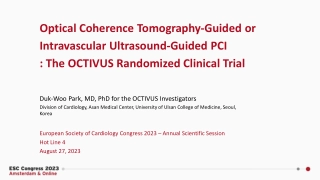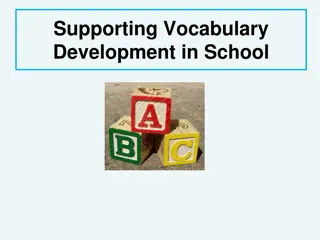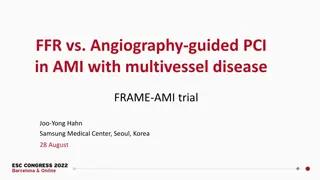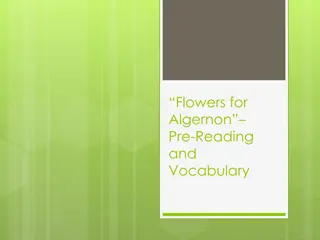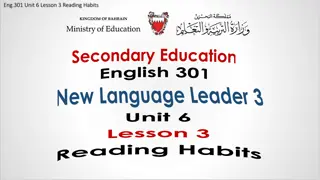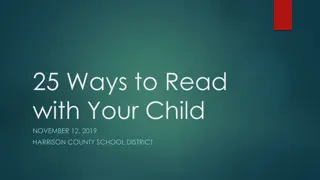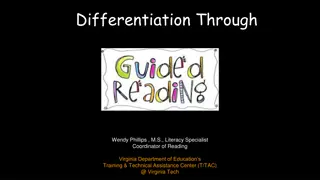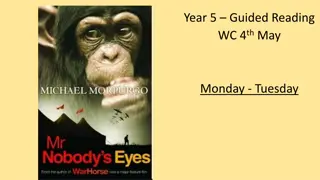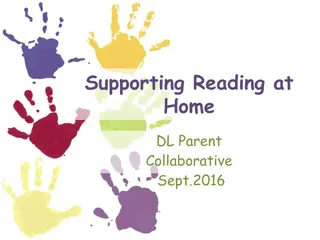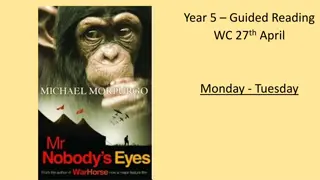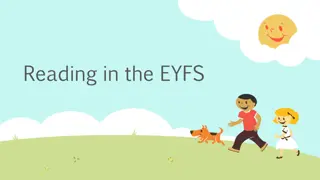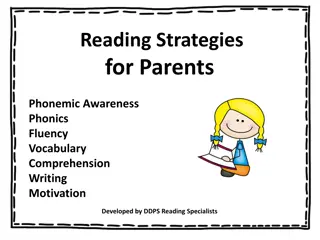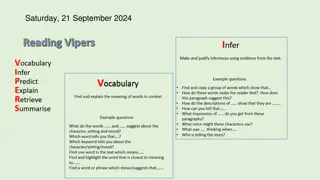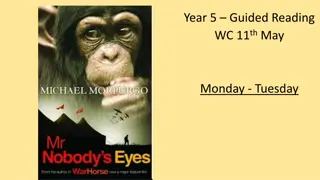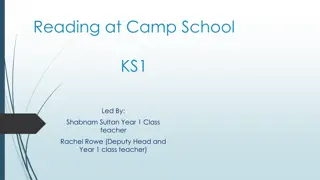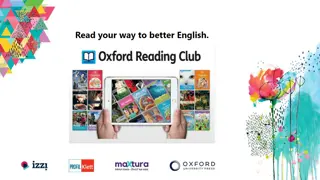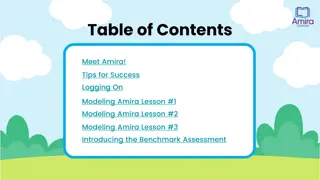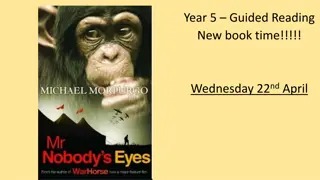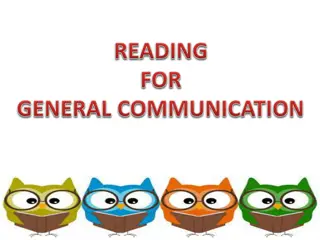Enhancing Guided Reading Lessons: Strategies and Activities for Vocabulary Development
Explore effective strategies and activities for guided reading lessons focusing on vocabulary development. Discover key elements for structuring lessons, emphasizing VIPERS methodology, and incorporating engaging activities to enhance reading comprehension. Additionally, learn how to address vocabulary issues in non-fiction texts and ways to develop vocabulary through various subjects such as Science, History, and Geography.
Download Presentation

Please find below an Image/Link to download the presentation.
The content on the website is provided AS IS for your information and personal use only. It may not be sold, licensed, or shared on other websites without obtaining consent from the author. Download presentation by click this link. If you encounter any issues during the download, it is possible that the publisher has removed the file from their server.
E N D
Presentation Transcript
Staff meeting- session 1 Reading lessons- what works well? What needs to improve? Guided reading lesson structure and discuss- clip https://m.youtube.com/watch?v=qeGMI0vZt9g Agree: structure/key elements Reading journals- Activities
Key elements for structure VIPERS should be displayed Use correct terminology Recap previous learning identifying VIPER Vocabulary- pre teach in advance or teach and teach in context; find a balance between words children really need to understand and those that they can be told quickly Have visuals ready to support vocabulary understanding Read first for enjoyment and analyse after Model reading- intonation and fluency Continue to use reciprocal reading strategies to explore the text Identify a specific learning focus for the lesson that will be taught and modelled, other skills to be revisited when appropriate A range of activities to be offered over the term
Agreed structure Recap previous lesson Introduce focus of lesson Pre teach new vocab in context of a sentence- 3/4 words Read- Share the text, using reciprocal reading strategies Read Clarify Question Summarise Teach- demonstrate a skill Explore skill in context of the text Complete activity
Expectations around activities that should be seen Expectations around activities that should be seen termly termly- - Multiple choice Matching Open ended questions Closed questions Labelling Find and copy Clarifying vocabulary Predictions Summarising
Reading session 2- Developing vocabulary Recognise vocabulary is an issue- what are the issues? How do we develop this already? https://bedrocklearning.org/blog/using-vocabulary-tiers-to-improve- literacy/
Developing vocabulary through non fiction texts How do we currently do this? Do we read in Science/History/Geography? How often? Consider how often the topic box books are used? Can chn navigate non fiction texts effectively? How often exposed to high quality text?
Why should we read across the curriculum? Research- EEF https://www.education.vic.gov.au/school/teachers/teachingresources /discipline/english/literacy/Pages/introduction_to_literacy_in_scienc e.aspx Andy Taylor- Pre complex texts
How could reading across the curriculum be incorporated? Developing a Non fiction reading spine
Expectations of reading across the curriculum Continue to read Non fiction texts in Guided reading. Where appropriate- balance this with fiction and poetry When planning in Science, History and Geography, consider opportunities for developing the use of vocabulary through a pre complex or age appropriate text. Vocabulary should be read in context. Consider how reading will enhance learning- Can you still ? Hook into learning, plenary, introducing a new concept, for modelling writing There is no maximum expectation for this but there is a minimum! There should be at least 2 texts read throughout a half term, in each subject area- more reading than that is fine! Reference the reading on the new Non Fiction reading spine for your year group- please keep copies of texts so you can use again (where possible) If you use more than 2 texts, please include on this document. Make use of the resources we have in school
